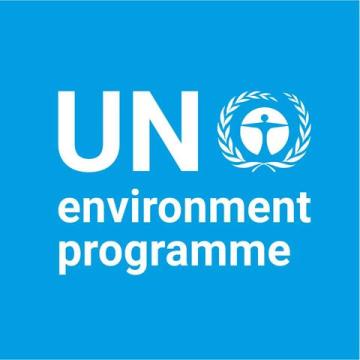
The United Nations Environment Programme (UNEP) is the leading global environmental authority that sets the global environmental agenda, promotes the coherent implementation of the environmental dimension of sustainable development within the United Nations system and serves as an authoritative advocate for the global environment.
The Green Growth Knowledge Partnership (GGKP) is a global community of policy, business, and finance professionals and organizations committed to collaboratively generating, managing, and sharing knowledge on the transition to an inclusive green economy. The GGKP is led by UNEP, the Global Green Growth Institute (GGGI), the Organization for Economic Co-operation and Development (OECD), United Nations Industrial Development Organization (UNIDO), and the World Bank).
The mission of GGKP is to empower government decision makers, companies and financial institutions with evidence-based knowledge that can best support them to contribute effectively to the green economy transition. The Global Environment Facility (GEF) programme, “Financing Agrochemical Reduction and Management (FARM)” aims to strengthen the sound management of agricultural chemicals and their waste, through better control, and reduction and / or elimination. To achieve this aim, the overall objective of the FARM programme is to generate a framework of knowledge and tools for financing sustainable agriculture practices, and that will address incentivizing financing through adjustments to key policies, regulations, standards, norms, and market innovations.
The FARM programme is being implemented by UNEP with GGKP as an executing agency for the Global Child Project. The GEF Global National Implementation Plans (NIPs) Update project is being implemented by UNEP and aims at assisting project countries to comply with their obligations on Article 7 and Article 15 of the Stockholm Convention, and particularly the review and update of NIPs and national reporting. The project is designed in five components, of which GGKP is delivering the component on knowledge sharing and dissemination, with the objective of enhancing participating countries' capacity to develop, review and update their NIPs. The focus of this job is the implementation, monitoring and evaluation of projects, including operations and other activities in the assigned functional area.
This position is located in the UNEP Industry and Economy Division, GGKP Secretariat, at the Geneva duty station. Under the direct supervision of the Head of the GGKP Secretariat, the incumbent will be responsible for the following duties:
Responsibilities
- Participates in the development, implementation and evaluation of assigned projects; monitors and analyzes project development and implementation; reviews relevant documents and reports; identifies problems and issues to be addressed and proposes corrective actions; liaises with relevant parties; identifies and tracks follow-up actions.
- Coordinates and provides expert subject matter guidance to the development of the projects’ strategies, including but not limited to Stakeholder Engagement, Knowledge Management, Communication, Gender, and Policy and Enforcement Engagement, and oversees their subsequent execution.
- Researches, analyzes and presents information gathered from diverse sources.
- Prepares various written outputs, e.g. draft background papers, analysis, sections of reports and studies, inputs to publications.
- Coordinates engagement with project partners, including but not limited to, implementing and executing agencies, co-finance partners and donors, and project stakeholders.
- Provides substantive support to consultative and other meetings, conferences, to include proposing agenda topics, identifying participants, preparation of documents and presentations.
- Undertakes outreach activities; conducts training workshops, seminars; makes presentations on assigned topics/activities.
- Coordinates activities related to budget and funding (project preparation and submissions, progress reports, financial statements) and prepares related documents/reports (pledging, work programme, project budget).
- Collects and analyzes data to identify trends or patterns and provide insights through graphs, charts, tables and reports using data visualization methods to enable data-driven planning, decision-making, presentation and reporting.
- Performs other duties as required.
Education: Advanced university degree (Master’s degree or equivalent) in environmental sciences, food sciences, chemistry, agronomy, sustainable development or a related field. A first-level university degree in combination with two (2) additional years of qualifying experience may be accepted in lieu of the advanced university degree. Successful completion of both degree and non-degree programs in data analytics, business analytics or data science programs is desirable.
Work Experience: A minimum of five (5) years of progressively responsible experience in project or programme management is required. Experience with partnership development and stakeholder engagement across sectors, such as finance, governments, intergovernmental organizations, private sector and non-governmental organizations is required. Experience in working on chemicals in agriculture is desirable. Experience with UN or similar international organizations' policies, procedures and practices is desirable. Experience in working in large multi-cultural environments is desirable. Two (2) years or more of experience in data analytics or related area is desirable.
